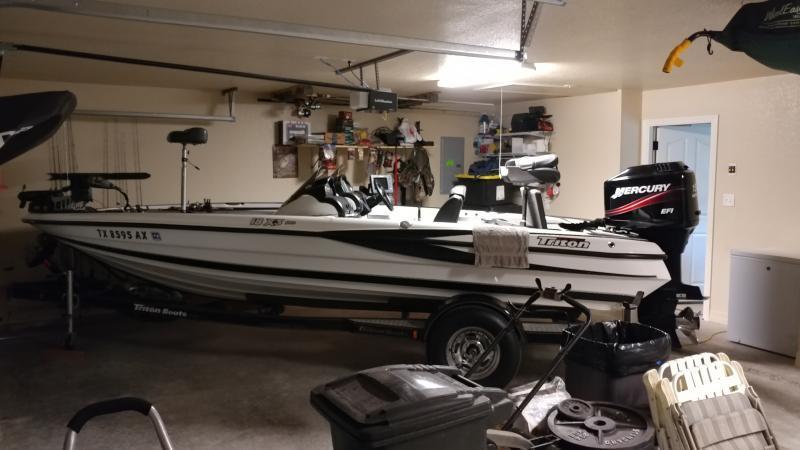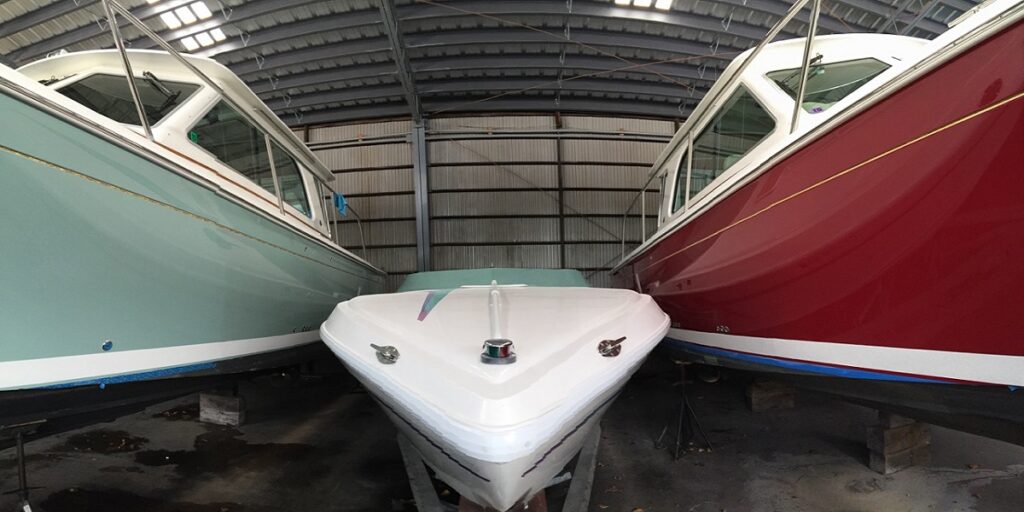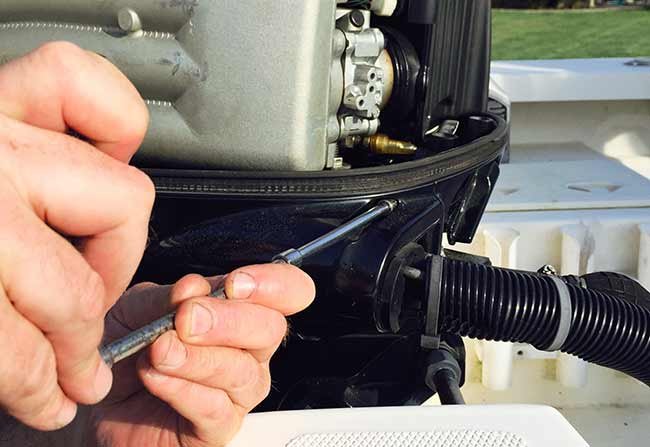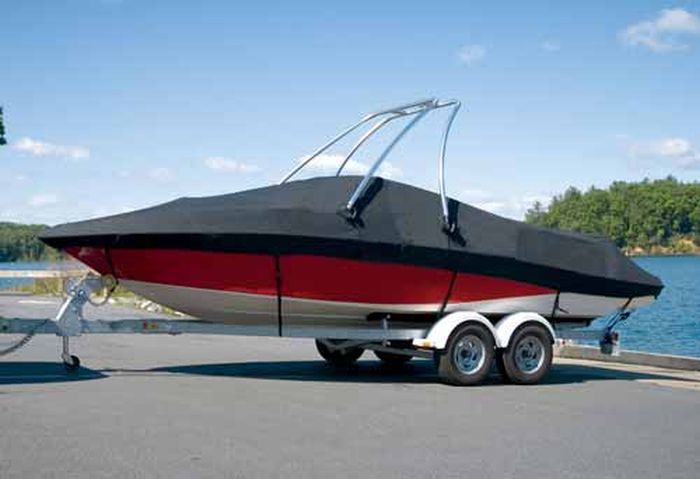Owning a boat is a dream of many people. The freedom and relaxation that the floating on the waves gives you cannot be matched, as sailing in any sense of the word is a truly wonderful experience. No matter where you do it, it is one of those things people associate with being carefree, enjoying life, and spending some quality time with the people you care about.

Source:texasfishingforum.com
However, owning a boat of any size can be a lot of work. It is very easy and convenient to care for the boat and tend to its needs when the weather is fine. From the middle of spring to the first half of autumn, boat owners usually keep their vessels in the water, securely tied with ropes and chains, or anchored in ports.
The real trouble starts when winter starts rapidly approaching and when the boat has to come out of the water for at least three or four months. Storing boats for the winter is the least favorite chore of anyone who ones a boat, no matter if it is a dinghy or a yacht. In this article, we will provide some tips on how to store your boat during winter months, so make sure to pay close attention while reading the rest of this article.

Source:petzolds.com
1. Quality Storage
In order to actually store your boat somewhere out of the water, you need to provide it with an adequate storage facility. Most owners like to keep their boats close by and decide to use their property as the location. However, the facility is a problem as not everyone has enough room in the garage or other supporting huts and cottages. Therefore, your best option is to devote a specific place to your boat. Building a separate place that will store your boat during winter will give you the ease of mind, and your boat a comfortable home out of the sea. Click here to learn more.
2. Check and Clean the Boat
Once the boat is out of the water, you have a great opportunity to fully inspect it for any damage or issues. This is especially true for the lower parts that are always submerged in water. Most owners clean the boat completely once it is out of the water, and then treat it once again before it goes back in during springtime. Thoroughly clean the inside and the outside and scrape the barnacles that attached to your hull. A pressure washer does wonders with boats. Also, use vinyl cleaner for any vinyl surfaces on your vessel. Make sure your boat does not need any repairs before you tuck it away for next year.
3. Gasoline
The winterization process of any boat requires the owner to remove any leftover gasoline from the fuel tank. Never store a boat that still contains gasoline. Siphon out the remaining gasoline in the tank by flushing it with a new fuel stabilizer for around ten minutes just to make sure.
4. Engine, Filters, Antifreeze

Source:boatus.com
Before storing away the boat, check the engine oil and replace the filters on your boat. Furthermore, inspect the belts and clamps, as well as hoses, steering cables, and lines. The gear case should be completely flushed and refilled with a new lubricant. Finally, choose the correct antifreeze for the boat as this tends to vary from model to model. In addition, to learn how to do everything properly, check the manual for instructions.
5. Carburetor, Cylinders, Battery
The carburetor requires fogging oil and so do the cylinders. Before your boat hits the storage, remember to apply the right fogging oil. Once the engine is turned on in the Spring, there will be smoke from the oil so do not worry about it. Regarding the battery, you must remove it from the boat and spray it with an anti-corrosion spray. Keep the battery stored away separately in a warm and dry place.
6. Valuable and Flammable Items
It is smart to remove everything from the boat before storing it, but this is most important with flammable items and valuables. Electronics, flares, and fire extinguishers should not stay on the boat while it is stored. Pots, pans, dishes, draperies, and linens should also be taken out and cleaned during the boat’s storage session.
7. Cover the Boat
Despite having it stored inside some sort of facility, your boat has to be covered too. Special boat canvases do exist, but most other kinds will work. Place a smaller canvas over the motor, and cover the entire boat in a polytarp or a polyvinyl cover that fits over it. This will protect the boat from the frost, humidity, dust, and critters.

Source:boatcoversdirect.com
8. Elevation
Most boats are put on special boat trailers immediately after they are taken out of the water. The trailers are specifically designed to hold the boats for long periods of time and it is how the majority of owners keep them during the winter months. However, more can be done here if you also want to protect the trailer. Some boat owners elevate the tires of the boat trailer during storage to protect them from the elements. They use blocks or pieces of wood onto which they park the trailer with the boat. This can prove challenging to do depending on the kind of boat and trailer combination you have. It should be mentioned that not everyone needs to do this. If your boat storage is perfectly safe from the elements and if nothing can damage the trailer nor the boat, you may not need to elevate your boat.
Conclusion and Takeaways
Winter months are hard enough with their harsh weather conditions and low temperatures, and not being able to sail and enjoy the open sea further makes them unenjoyable. In order to protect your family boat during this season, you must all it takes to provide it with a safe place to spend the winter until it can provide you with more joy come springtime. As you have to already know, owning a boat can prove difficult, which is why most boat owners say that actually purchasing a boat is the least of your worries, both financial and in general!